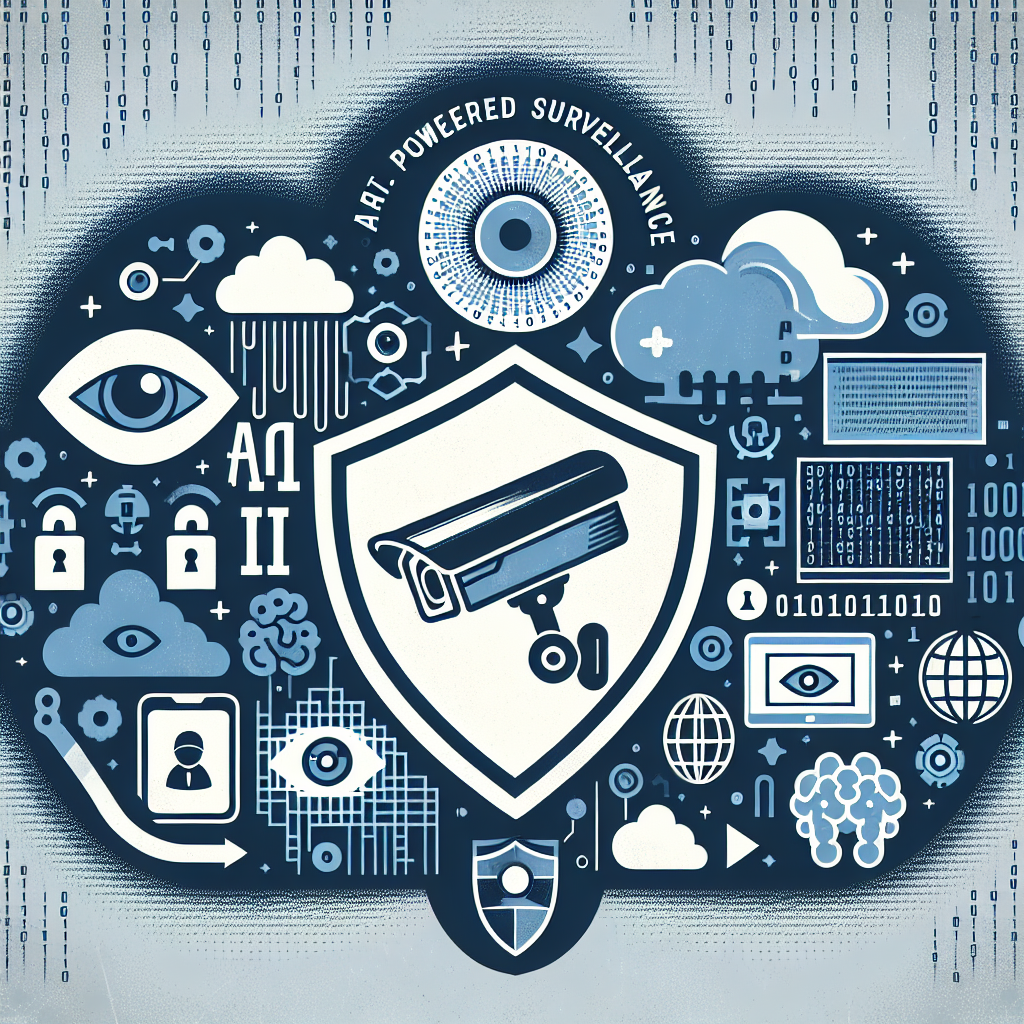Privacy Rights in the Era of AI-Powered Surveillance
In today’s digital age, privacy rights are becoming increasingly important as advancements in technology, especially artificial intelligence (AI), continue to raise concerns about surveillance and data collection. With the rise of AI-powered surveillance systems, individuals are now facing new challenges when it comes to protecting their personal information and maintaining their privacy. In this article, we will explore the implications of AI-powered surveillance on privacy rights and discuss what individuals can do to protect themselves in this new era of technology.
The Impact of AI-Powered Surveillance on Privacy Rights
AI-powered surveillance systems have significantly increased the capabilities of monitoring and tracking individuals in various contexts. These systems use advanced algorithms and machine learning techniques to analyze massive amounts of data from sources such as video feeds, social media, and online activity. As a result, these systems can now identify and track individuals with unprecedented accuracy and efficiency.
One of the most significant concerns surrounding AI-powered surveillance is the potential for widespread invasion of privacy. For example, facial recognition technology, a common application of AI in surveillance systems, can track individuals’ movements and activities in public spaces without their consent. This technology raises questions about the ethical implications of constant monitoring and the potential for abuse by governments and corporations.
Furthermore, AI-powered surveillance systems can also collect and analyze personal data from various sources, such as social media profiles, online purchases, and internet browsing history. This information can be used to create detailed profiles of individuals, including their preferences, behaviors, and interests. While this data can be valuable for targeted advertising and personalized services, it also raises concerns about the potential for data breaches and misuse of personal information.
In addition to privacy concerns, AI-powered surveillance also raises questions about discrimination and bias. AI algorithms are only as good as the data they are trained on, and if that data is biased or incomplete, it can lead to discriminatory outcomes. For example, facial recognition algorithms have been shown to have higher error rates for individuals with darker skin tones, leading to misidentifications and false accusations.
Protecting Privacy Rights in the Era of AI-Powered Surveillance
Despite the challenges posed by AI-powered surveillance, there are steps that individuals can take to protect their privacy rights in this new era of technology. Here are some strategies to consider:
1. Be informed: Stay informed about the latest developments in AI-powered surveillance and understand how these systems may impact your privacy rights. Educate yourself about the technologies being used and the potential risks they pose.
2. Limit your digital footprint: Be mindful of the information you share online and consider limiting the amount of personal data you disclose on social media and other platforms. Be cautious about the permissions you grant to apps and websites, as they may collect and share your data without your knowledge.
3. Use privacy-enhancing tools: Consider using privacy-enhancing tools such as virtual private networks (VPNs), encrypted messaging apps, and ad blockers to protect your online privacy. These tools can help you maintain anonymity and prevent tracking by third parties.
4. Advocate for privacy rights: Support organizations and initiatives that advocate for privacy rights and data protection. Stay informed about privacy laws and regulations in your country and advocate for stronger protections against AI-powered surveillance.
5. Be proactive: Take proactive steps to protect your privacy, such as regularly updating your privacy settings on social media platforms, using strong passwords, and enabling two-factor authentication. Be cautious about sharing sensitive information online and think twice before clicking on suspicious links or downloading unknown apps.
FAQs:
Q: Can AI-powered surveillance systems be used for legitimate purposes?
A: Yes, AI-powered surveillance systems can be used for legitimate purposes such as public safety, security, and law enforcement. However, it is essential to balance the benefits of these systems with the potential risks to privacy rights and civil liberties.
Q: How can individuals protect themselves from AI-powered surveillance?
A: Individuals can protect themselves from AI-powered surveillance by being informed about the technologies being used, limiting their digital footprint, using privacy-enhancing tools, advocating for privacy rights, and taking proactive steps to protect their privacy online.
Q: What are the potential risks of AI-powered surveillance?
A: The potential risks of AI-powered surveillance include invasion of privacy, data breaches, discrimination, and bias. These risks can have serious implications for individuals’ rights and freedoms, and it is essential to address them through robust privacy protections and regulations.
Q: Are there any regulations in place to govern AI-powered surveillance?
A: Some countries have implemented regulations to govern AI-powered surveillance, such as the General Data Protection Regulation (GDPR) in the European Union. However, more comprehensive regulations are needed to address the ethical and legal implications of AI-powered surveillance on a global scale.
Q: How can individuals advocate for stronger privacy protections?
A: Individuals can advocate for stronger privacy protections by supporting organizations and initiatives that promote privacy rights, staying informed about privacy laws and regulations, and engaging with policymakers and lawmakers to advocate for stronger privacy protections against AI-powered surveillance.

